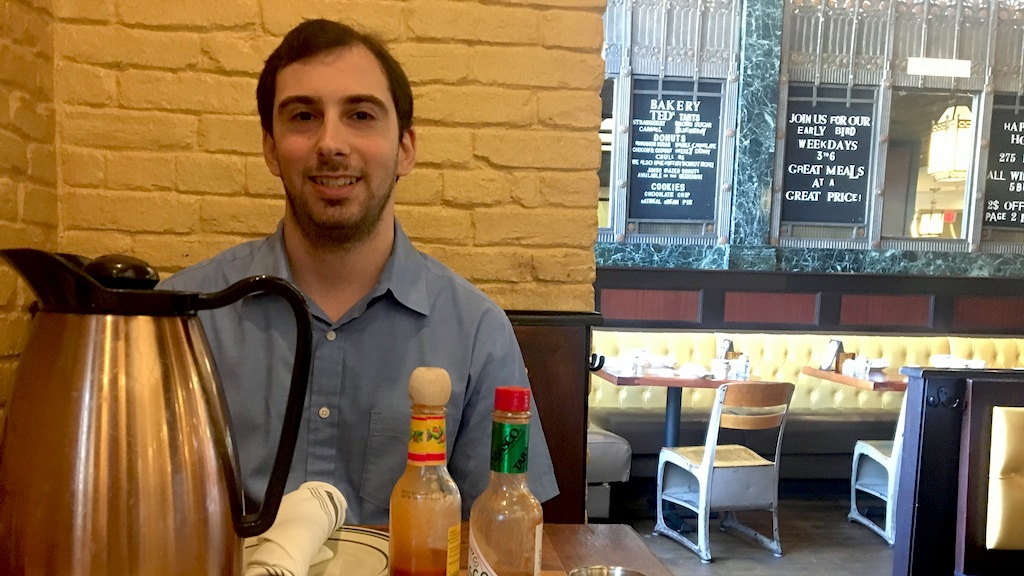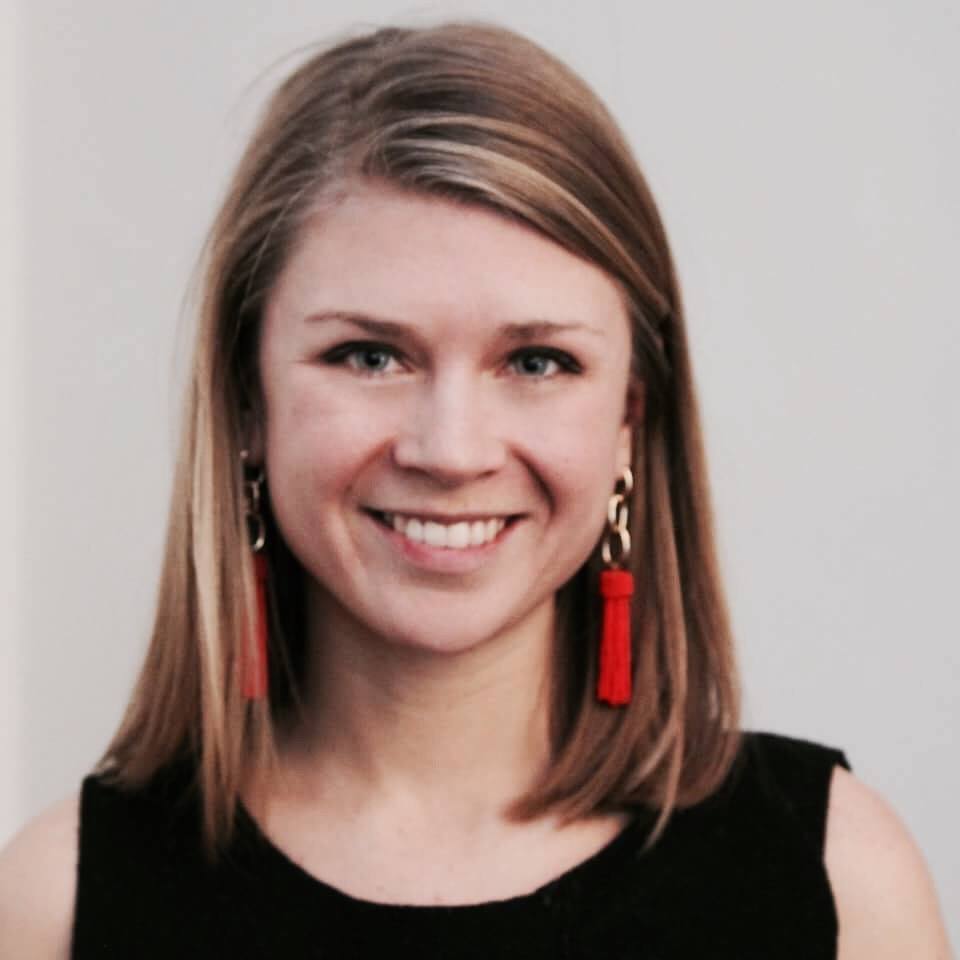An article in the American Conservative last week made quite the stir among Washingtonians when its writer dared to go after the most vital of DC rites: brunch.
Titled “What the D.C. Brunch Says About The Young Urban Elite,” Addison Del Mastro‘s commentary decried the “coarse, even uncivilized ritual” of leisurely weekend meals, which, Del Mastro complained, are “cloaked in the respectability of Sunday morning.” It criticized what the author sees as a homogenous culture, in which all young people living in DC speak with the same accent, watch the same television shows, and live the same godless, meaningless lives. Above all, it encouraged millennials to to look beyond their own existence, and develop an appreciation for “a harder, grittier, more modest way of life.” (Like giving up journalism, consulting, and policy-making for careers in auto repair and electrical engineering in the Midwest.)
But just who is Addison Del Mastro, and why does he have so much venom for a ritual that wouldn’t make many Washingtonians (or denizens of many other US conurbations, for that matter) think twice? Why can’t he let his peers who wish to live a hedonistic existence go about their wicked lives in peace?
Naturally, he was unavailable for brunch, so why not take him out for the next-best thing: breakfast at Ted’s Bulletin, one of the busiest brunch spots on 14th Street’s hopping restaurant strip. Del Mastro, 24, meets me sitting at the restaurant’s window, reading James Howard Kunstler’s The Geography of Nowhere. He’s wearing a short-sleeved, light blue, button-down shirt tucked into gray pants, and carrying a green lunch box.
A large screen in the dining room is playing the Andy Griffith Show, that wholesome relic of an era in which, evidently, Del Mastro wishes he had been born. (When I ask him to describe his ideal society, he says, “The 1950s without the racism or the sexism. A society where that’s possible–where working people can do well for themselves.”) When it comes time to order, though, not even Ted’s Bulletin’s old-timey pastiche lulls him into ordering something extravagant. He sticks with just coffee, while I go for a decidedly brunch-y bacon, egg, and cheese sandwich.
Del Mastro’s apparent gripe with DC’s “urban elite” is two-fold: First, he believes they idolize a certain lifestyle that just isn’t all it’s cracked up to be; second, he thinks they live in a homogenous bubble, and lack a proper appreciation for “working people.”
Del Mastro—who as a magazine writer in his mid-20s certainly isn’t leading a life of backbreaking labor—tells me about the moment he started to loathe DC brunch. It was a Saturday night when he was a master’s student in the public policy program at the University of Maryland. He stayed out late with a group, and got stuck taking care of a drunken friend. Many people might call that a typical collegiate experience; to Del Mastro, it was a life-altering grievance.
“I had to drive home at 2 AM,” he says. “And then she’s like drunk, and barely standing, and she says, ‘Do you guys want to do brunch in the morning?’ And I just kind of thought, that this is how a lot of people live and, you know, it’s fine, but there’s more to life than that.”
Del Mastro, who lives in Reston with his wife, has plenty of beefs with the way his peers behave themselves. But he’s quick to point out, “I’m not criticizing a people, I’m criticizing a lifestyle.” Del Mastro, for one, likes going to church on Sunday (he attends Saint John Neumann near his home), and cooking at home, instead of going out.
In reference to a perceived reticence among millennials to cook for themselves, he tells me, “There’s something to be learned from seeing people my age sitting down and cooking and having dinner, and you have 30-year-olds tweeting out, ‘I’m adult-ing, I bought vegetables.’” On the topic of marriage and religion, he expresses dismay that millennials look at betrothed people with “a sort of suspicion,” and that in conversations with some of his peers, “it almost feels subversive to slip in, ‘oh you know, I went to church.’” He feels similarly about sexual mores. “People think it’s weird if you actually have a moral opinion about sex,” he says.
I’m guilty of exhibiting many of the characteristics Del Mastro identifies in urban millennials. I hate to cook, am skeptical of religion, and don’t feel comfortable projecting expectations surrounding sexuality on anyone. But I can’t say that’s reflective of all my peers as a whole. It has been widely reported that millennials are less religious than previous generations, for example. But 59 percent of DC adults believe in God, and 32 percent attend religious services once a week, according to figures from the Pew Research Center. So while Del Mastro might perceive some hesitance toward religion among his peers, the city as a whole is not that godless.
Del Mastro says he blames the behavior he criticizes not on millennials themselves, but on a society that “disincentives” people from having kids or getting married. In Del Mastro’s ideal world, young people would have a proper appreciation for “a fading way of life,” and recognize that “there’s a whole swath of the country that you might as well not know exists.”
In DC, he says, “You’re physically and mentally segregated in affluence, and I think that’s a bad thing.” Enter Kunstler’s The Geography of Nowhere, which looks at “America’s evolution from a nation of main streets and coherent communities to a land where everyplace is like no place in particular, where the city is a dead zone and the countryside a wasteland of cars and blacktop.”
Del Mastro gets defensive when I point out that he went to good schools and has a decent job in an urban area. “Not everyone going to college is going to be a successful, white collar professional,” he says. While he had a comfortable upbringing in central New Jersey, he says that his parents were “sympathetic to the idea that you should have a job and work with your hands,” and he spent summers in between being homeschooled working at a small library, and on a farm. “Look, it’s not for everyone,” he tells me, “but I think everyone should have that experience.”
If put to Del Mastro’s test, I would fail miserably, as would many of our fellow millennials. Pockets of DC can feel homogenous at times, but his argument is far from reflective of the entire city. After Del Mastro published his brunch-bashing article, Slate’s Jamelle Bouie tweeted that the article “could only be written by someone who spends his time in Dupont/Logan/14th St and doesn’t know any black people.” Indeed, it seems that Del Mastro’s judgments have been shaped by spending time in Northwest DC’s recently renovated bubbles; perhaps they’d change if he visited any of the other three quadrants.
Yes, DC is one of the most expensive cities in America, and many Washingtonians have money to spend on their lifestyle. But things are rarely ever as simple as looking at who’s ordering bottomless mimosas on a weekend morning. I don’t know that I really convinced Del Mastro of this over a Tuesday brunch invite, but at least you now know how he spends his Sunday mornings.



















